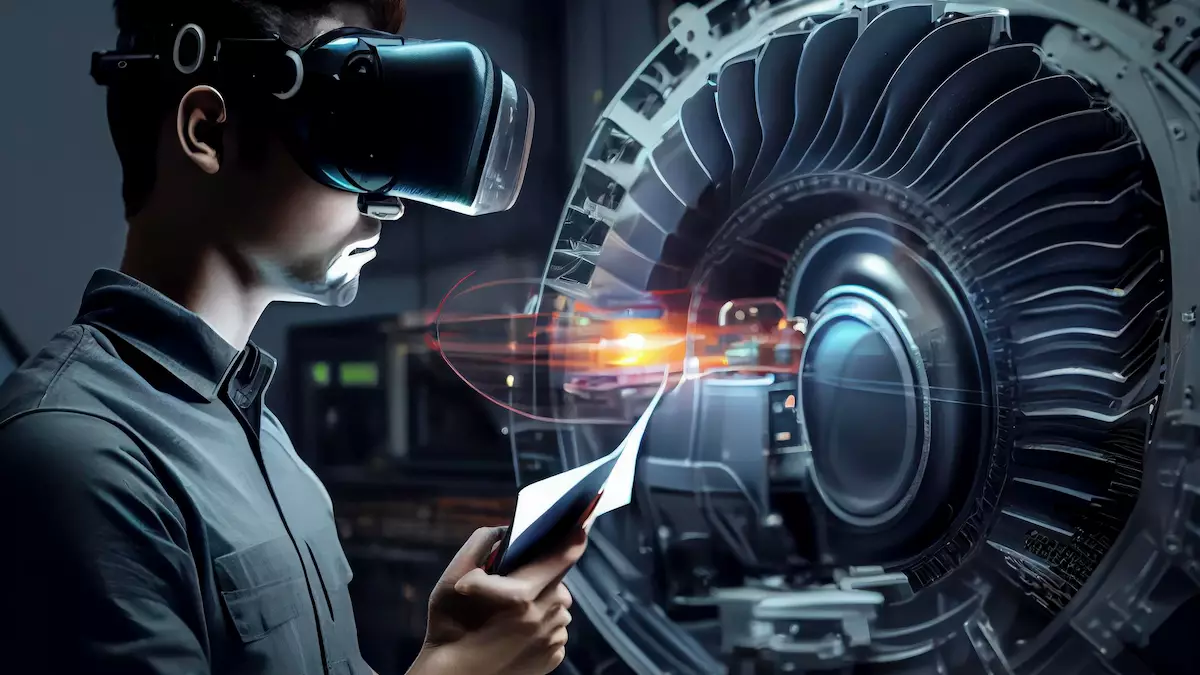The industrial metaverse is revolutionizing industries across the globe, with its rapid growth and transformative potential. This emerging technology is projected to reach sales of US$ 61.8 billion in 2022, and is expected to soar at a compound annual growth rate (CAGR) of 25.3% from 2023 to 2033, ultimately expanding the Industrial Metaverse Market to a staggering US$ 765.8 billion by 2033. The integration of the industrial metaverse into sectors such as car manufacturing is driving a new wave of innovation and efficiency. By leveraging virtual prototyping and advanced digital platforms, businesses are experiencing faster product development cycles, reduced costs, and more sustainable practices.
In the automotive industry, the industrial metaverse is transforming how vehicles are designed. Rather than relying solely on physical prototypes, manufacturers can now utilize virtual models of cars to build and adjust designs before they go into production. This shift accelerates the design process, minimizes the need for constructing multiple physical models, and enhances the overall efficiency of the car design cycle. Additionally, the metaverse is invaluable for testing the performance of car parts. Engineers can run simulations on various components, including engines and frameworks, all within a digital space. This method saves time, money, and promises higher quality and more reliable vehicle parts.
The impact of the industrial metaverse extends beyond design and testing, reaching the heart of car manufacturing – the assembly line. Here, the metaverse is employed to fine-tune operations, making the process of building cars smoother and more efficient. By leveraging virtual reality (VR), augmented reality (AR), and mixed reality (MR), manufacturers can optimize assembly line processes, minimize errors, and enhance productivity. Integrating the metaverse into the assembly line workflow has the potential to revolutionize the automotive industry and drive organizations towards a more sustainable and competitive future.
The transformative power of the industrial metaverse goes beyond technology; it also redefines the future of work. By enabling collaboration between stakeholders worldwide, independent of geographic constraints, the metaverse facilitates real-time interaction and virtual communication. Teams can now create, test, and improve product designs without the need for physical meetings. This not only enhances efficiency but also fosters a more productive workflow. With the growing acceptance of the industrial metaverse in the global market, its integration into various sectors has become essential for organizations to adapt to the changing work landscape. Embracing this technology will soon be a necessity rather than an option for businesses striving to remain competitive.
The surge in digital twin technology and the integration of advanced digital platforms featuring VR, AR, and MR are driving the adoption of the industrial metaverse. These technologies enable activities traditionally done in the physical realm to be transferred into entirely virtual environments, leading to more sustainable and innovative practices. The industrial metaverse holds the potential to transform not only specific industries but also entire organizational processes. Embracing this technological revolution will allow businesses to streamline operations, reduce costs, and drive efficiency. As the industrial metaverse reshapes industrial processes, it becomes an essential tool for organizations seeking to stay competitive in a rapidly evolving landscape.
The industrial metaverse is positioned to revolutionize industries, driving innovation and efficiency as it continues to experience rapid growth. Its integration into sectors such as car manufacturing is reshaping the way products are designed, tested, and assembled. With its transformative potential, the industrial metaverse is redefining the future of work, enabling global collaboration and fostering a more efficient workflow. The growing acceptance of this technology shows its potential to revolutionize industries and become an essential tool for organizations striving to remain competitive in a changing landscape. As businesses embrace the industrial metaverse, they are poised to unlock new opportunities and transform their industries, ultimately driving a new era of innovation and sustainability.














Leave a Reply